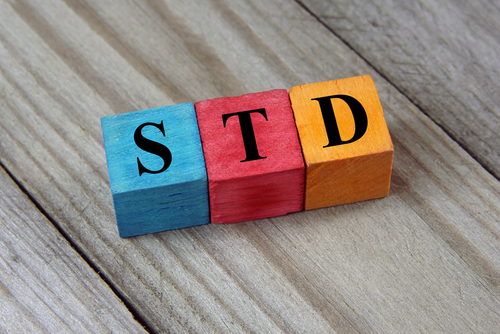As a hardworking adult, your romantic life is extremely important to you as it provides another level of joy and pleasure outside of the office. A natural extension of that relationship is, without a doubt, becoming romantic with one another from time to time. In some instances, certain individuals might opt out of using protection from outside diseases. While each individual’s sexual decisions are entirely their own, there are certain technologies available that make staying healthy and safe that much easier. If you’ve just had unprotected sex, or feel as though you may have an STD, here’s what you need to know. Home STD Tests are Available and Cheap For many people, STD tests are never taken out of potential costs, ridicule they may receive or judgement from healthcare professionals. Although these instances are not true, there is a solution that allows patients to understand what their body is going through in an accurate and private setting. While these devices are by no means a long-term alternative to being tested for sexually transmitted diseases by a doctor, they can provide unique insight in a fraction of the time. Certain convenience stores, like Walgreens and CVS, provide at-home STD tests that allow users to check their status through an online platform. In essence, the customer will purchase their at-home testing kit, register an account on that manufacturer’s website, submit their sample in the product provided and, finally, ship the sample to the lab. From here, the lab will analyze the sample and post the results online for the user to see. This entire duration of the process can range from a few days to a full week. Should you find yourself with a STD, it’s always recommended that you find a local testing facility for further information. You Are Not Alone Through this entire process you may find yourself worried, anxious or downright scared as to what your future may hold. It is paramount that you not only remain optimistic about your future, but also feel secure knowing that there are healthcare professionals that are willing and ready to help you. While you wait, examine some of the most common side effects of an STD located below and see if you are suffering silently.
- Skin rash
- Swelling in the genitals
- Soreness in lower extremities
- Extreme fatigue
- Flu-like symptoms
- Discharge from the genitals
- Difficulty or discomfort while urinating
Ways To Avoid STDs
The only way to guarantee not contracting a sexually transmitted disease is by not having sex. However, abstinence is not a valid method for most adults. If you are in a romantic relationship you should discuss using protection with your partner. Latex condoms are the second-best way to prevent STDs. It is also important to wash yourself after intercourse so bodily fluids do not linger. If you allow fluids to sit, you are more likely to get an infection. If you have multiple partners it is important to get tested frequently. In some cases symptoms can be dormant and you can pass on an STD without even knowing. However, if you are in a monogamous relationship and you both have been tested and cleared it is possible to continue having sex without protection. Most common STDs The two most common STDs are chlamydia and gonorrhea. Chlamydia can be contracted through vaginal, anal, or oral sex. There is treatment plan for chlamydia that involves an easy prescription medicine routine for a week. However, if left untreated chlamydia can damage the women?s reproductive system, which can leave women un fertile. Similar to chlamydia, gonorrhea can be present in the vagina, anus, or throat. It is crucial to treat gonorrhea because it is capable of spreading to other parts of the body. In addition, gonorrhea can make you more susceptible to HIV. Gonorrhea symptoms can go unnoticed, which is why it is so important to get tested after each new partner. Conclusion An important part of living a healthy and fulfilling personal life is knowing your risk for sexually transmitted diseases, and regularly getting tested. It’s an important responsibility for both your own health and that of your partners.

